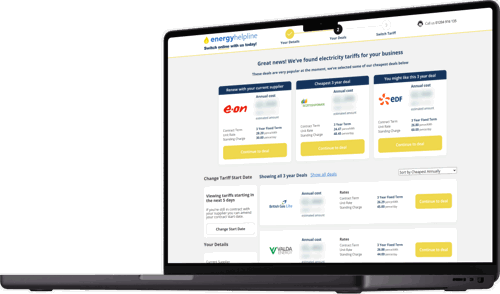Carbon Offsetting for Businesses
Environmental pressures are increasingly becoming a major talking point, and small UK businesses are starting to plan their strategies. Carbon offsetting has emerged as a leading solution for creating more sustainable operations.

Small businesses are following suit by investing in projects that reduce or remove carbon emissions and contribute positively to the environment.
This guide is designed to help small UK businesses understand carbon offsetting, providing practical knowledge to make informed, sustainable decisions. By supporting verified initiatives, businesses can not only lower their carbon footprint but also demonstrate their commitment to environmental responsibility to customers and partners.
What is Carbon Offsetting?
Carbon offsetting enables businesses to offset their greenhouse gas emissions by participating in initiatives that reduce or remove CO2 elsewhere.
Small UK businesses can get involved in projects such as:
- Tree planting schemes – absorbing CO2 from the atmosphere.
- Purchasing renewable energy tariffs – using clean energy reduces reliance on fossil fuels.
- Energy efficiency improvements – upgrading lighting, heating, or insulation minimise overall energy consumption.
Many of these initiatives are verified, ensuring that your investment leads to measurable environmental benefits. Promoting your involvement can also act as a marketing tool, enhancing your brand’s image.
Why Carbon Offsetting Matters
Running a small business in the UK is challenging, with attention often focused on customers and revenue. However, there are accessible ways to get involved in carbon offsetting without increasing costs and saving money.
For example, switching to renewable energy suppliers such as SmartestEnergy, Valda, or selecting specific tariffs from British Gas can reduce your carbon footprint and contribute to offset projects.
Other benefits of carbon offsetting include:
- Enhancing your business’s reputation and credibility.
- Supporting regulatory compliance and environmental standards.
- Contributing to global sustainability efforts.
Climate Change Levy (CCL)
The Climate Change Levy (CCL) is a tax on energy use in the UK designed to encourage efficiency. Participating in carbon offset schemes does not exempt businesses from CCL. However, investing in energy efficiency measures can bring down your overall usage and, in turn, reduce your CCL liability.
Carbon Offsetting - What You Can Do Today
Carbon offsetting may sound expensive, but it doesn’t need to be. There are steps you can start taking today to improve your energy efficiency by understanding your current tariff, comparing renewable business electricity deals, and reviewing the suppliers you are currently using.
By choosing suppliers with renewable energy options, businesses can reduce their direct carbon footprint and, in many cases, fund additional offset projects indirectly through their energy provider.
Choosing The Right Carbon Offsetting Strategy
Carbon offsetting is no longer just a corporate responsibility; it’s a strategic decision that can improve efficiency, save costs, and boost your brand reputation. Small UK businesses can start by reducing their usage by making simple changes to their operations and switching to renewable tariffs.
